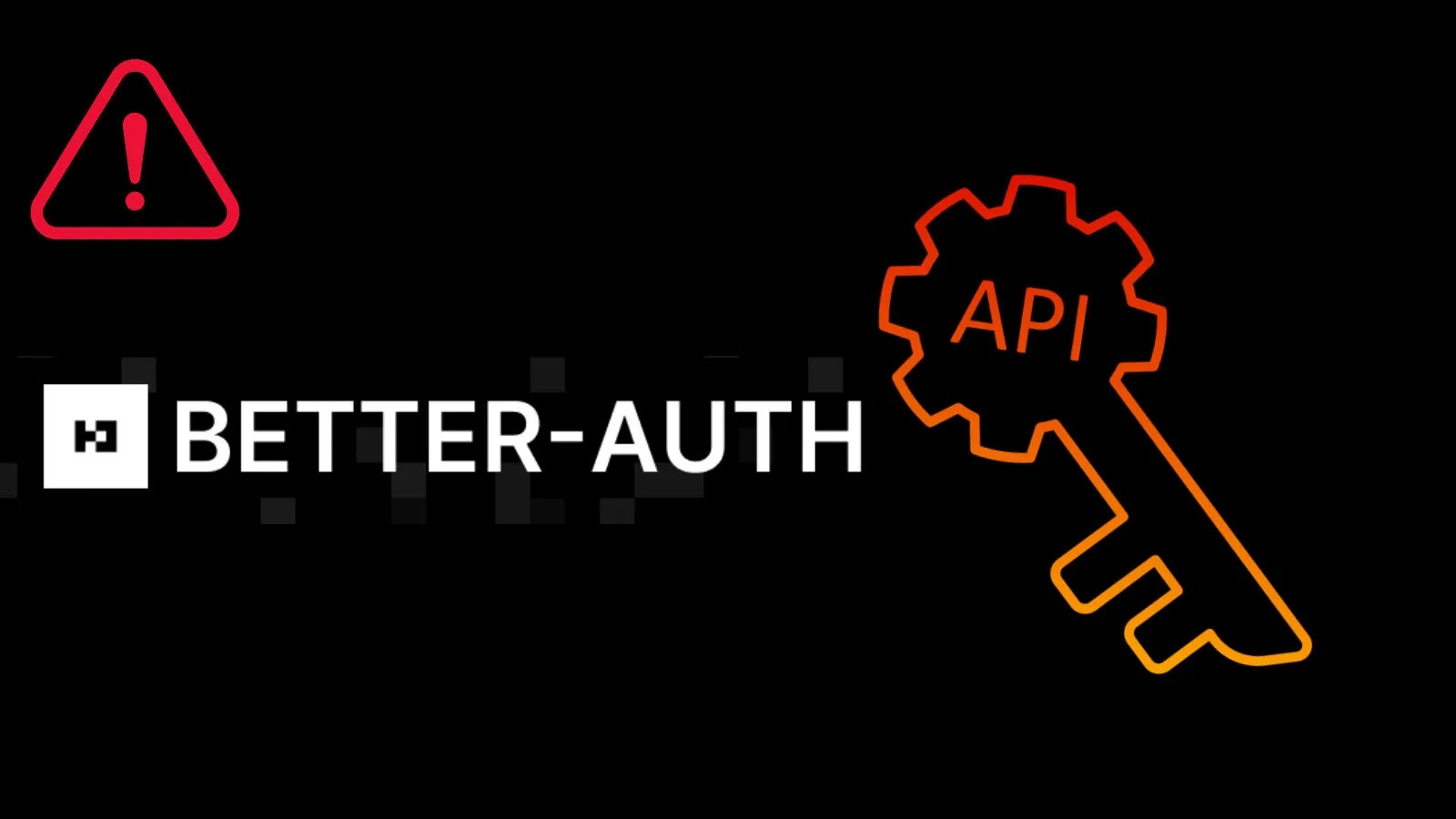
Better Auth API keys Vulnerability Let Attackers Create Privileged Credentials For Arbitrary Users
Unauthenticated Privilege Escalation: Decoding the Better Auth API Keys Vulnerability
The security of our applications often hinges on the robustness of their underlying authentication mechanisms. A critical vulnerability, CVE-2025-61928, has been uncovered in the popular TypeScript authentication framework, Better Auth, specifically within its API keys plugin. This flaw allows attackers to forge privileged credentials for any user without prior authentication, posing a severe threat to applications globally. With millions of weekly downloads on npm, the implications of this vulnerability are far-reaching, demanding immediate attention from developers and security professionals.
Understanding Better Auth and Its API Keys Plugin
Better Auth is a widely adopted TypeScript framework designed to simplify and secure authentication processes for web applications. It offers various authentication strategies, including API key management, which allows applications to grant access based on unique cryptographic keys. The API keys plugin is a crucial component for many applications, enabling seamless integration with other services and internal systems. Unfortunately, a design flaw within this plugin has rendered it a significant attack vector.
The Mechanics of CVE-2025-61928: How Attackers Exploit Better Auth
The CVE-2025-61928 vulnerability permits an unauthenticated attacker to generate valid, privileged API keys for any arbitrary user within an application leveraging the Better Auth API keys plugin. This means an attacker doesn’t need to steal existing credentials or bypass typical authentication hurdles. They can simply create new, highly powerful access tokens, effectively taking over user accounts or even administrative access. The core issue lies in how the API key generation and validation process is handled, allowing for unauthorized creation of these critical credentials without proper checks.
Impact and Potential Consequences of Unauthenticated Credential Creation
The impact of CVE-2025-61928 is severe and multifaceted:
- Widespread Account Compromise: Attackers can create privileged access for any user, leading to a complete compromise of user accounts, including those with elevated permissions.
- Data Exfiltration: With privileged access, attackers can access and steal sensitive user data, intellectual property, or confidential business information.
- System Takeover: If administrative accounts are targeted, the entire application or connected systems could be at risk of compromise and manipulation.
- Reputational Damage: Data breaches and security incidents severely damage an organization’s reputation and erode user trust.
- Financial Loss: Compromised accounts can lead to financial fraud, service disruption, and costly remediation efforts.
Remediation Actions for Better Auth Users
Addressing CVE-2025-61928 is paramount for applications using the Better Auth API keys plugin. Here’s actionable advice for developers and security teams:
- Immediate Update: The most crucial step is to update the Better Auth library to the latest patched version as soon as it becomes available. Always monitor the official npm registry and the Better Auth project repository for security announcements and updates.
- Audit Existing API Keys: Review all existing API keys for any anomalies or recently created keys from unknown sources. Consider rotating all critical API keys after patching.
- Implement Stronger Access Controls: Even after patching, ensure that API keys are granted the principle of least privilege. Only assign the minimum necessary permissions for their intended function.
- Enforce Rate Limiting: Implement robust rate limiting on API key generation endpoints to prevent attackers from rapidly creating numerous keys.
- Enhance Logging and Monitoring: Improve logging around API key creation, modification, and usage. Monitor these logs for suspicious activity, such as unusually high volumes of new API key generation or access from unfamiliar IP addresses.
- Web Application Firewall (WAF): Deploy a WAF to help detect and block suspicious requests targeting API key generation endpoints or other sensitive API functions.
- Security Code Review: Conduct a thorough security review of any custom code interacting with the Better Auth API keys plugin to identify and rectify any unsafe practices.
Tools for Detection and Mitigation
While direct detection tools for this specific vulnerability might be integrated into a larger security suite, general security practices and scanning tools can aid in overall posture improvement and identifying exploitation attempts.
| Tool Name | Purpose | Link |
|---|---|---|
| npm audit | Identifies known vulnerabilities in Node.js project dependencies, including Better Auth. Run regularly. | https://docs.npmjs.com/cli/v9/commands/npm-audit |
| Snyk | Developer security platform that finds and fixes vulnerabilities in open-source dependencies. | https://snyk.io/ |
| OWASP ZAP (Zed Attack Proxy) | Free, open-source web application security scanner. Can be used for penetration testing and vulnerability assessment. | https://www.zaproxy.org/ |
| Burp Suite Community Edition | Leading software for web security testing. Useful for manual and automated vulnerability discovery. | https://portswigger.net/burp/communitydownload |
Conclusion
The unauthenticated API key generation vulnerability (CVE-2025-61928) in Better Auth’s API keys plugin represents a serious threat that could lead to widespread account compromises. Developers relying on this popular TypeScript framework must prioritize patching their systems and implementing enhanced security measures. Proactive monitoring, robust access controls, and adherence to security best practices are essential to safeguard applications against such critical vulnerabilities and maintain the integrity of user data and system access.





